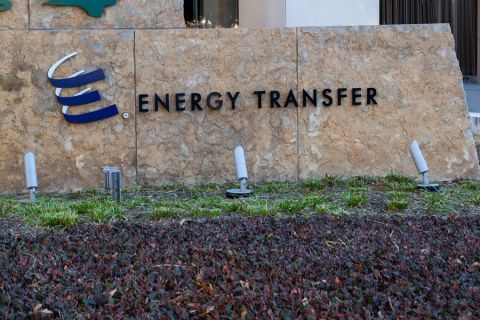A couple of recent deals for South Texas gas assets have the oil and gas A&D business abuzz. Chesapeake Energy Corp. paid $1.41 per thousand cubic feet equivalent (Mcfe) for proved reserves from privately held Laredo Energy and partners. The deal is unusual for both its price-the recent average for South Texas gas assets was $1.09 per Mcfe-as well as that it's a step-out from the Midcontinent where more than 90% of Chesapeake's reserves are now. Additionally, the deal was disclosed inside the company's third-quarter earnings press release, so some A&D professionals missed the news. Interesting too is that Laredo was only formed two years ago, by former Michael Petroleum executives, and had already amassed such size without making large purchases. Then, within a week of Chesapeake's news, Westport Resources Corp. announced plans to pay $1.48 per Mcfe for South Texas proved reserves from another privately held producer, United Resources. Both acquisitions target the prolific Lobo, Wilcox and Vicksburg trends. "The price paid is very high by any measure," said one E&P business-development professional after the Chesapeake announcement. (For more on both deals, see "Company Briefs" in this issue.) However, Houston-based Waterous & Co. associate Craig Lande, who tracks U.S. deal values for the investment-banking and asset-divestiture firm, says the price isn't too unusual-for its size. "The bigger the gas deal, the bigger the premium. That's been the trend the past year to 18 months." Larger purchases have a greater effect on buyers' portfolios, he says. "It's scale. A bigger deal can bring a larger concentration of assets." Chesapeake's purchase will add 4% more proved reserves to its total portfolio, and significantly more size to its South Texas portfolio; Westport's purchase will add 13% to its total portfolio. Some A&D professionals are concerned, however, that Chesapeake, which has made a reputation for itself in the Midcontinent as being willing to pay well for what fits its strategy, will put pressure on South Texas property prices. Whether Chesapeake, Westport or any other prospective buyer makes another pricey South Texas purchase in the next several months, sellers are certainly already expecting higher offers now than they were a few weeks ago. Chesapeake reports that the Gulf Coast and Permian Basin, where a combined 8% of its proved reserves are, "will remain secondary in importance." Lande, who developed the 12-month weighted average value tagged to South Texas asset deals through September 30 at $1.09 per Mcfe, expects the Chesapeake and Westport deals will push that figure higher. Joseph D. Allman, analyst with RBC Capital Markets, isn't too sure Chesapeake's departure from the Midcontinent will net good results. "This acquisition is a bit more risky than other Chesapeake acquisitions. Only time will tell whether or not this acquisition is a good one." Like Chesapeake, Westport is not new to paying a premium for gas assets, he notes. It paid well in 2002 for East Texas gas from Smith Production-$120 million for 76 billion cubic feet equivalent (Bcfe) of proved reserves. That deal, plus a later $510-million purchase of 603 Bcfe in Utah from El Paso in 2002 and the one under way with United Resources, will more than double Westport's proved reserves. It went into third-quarter 2002 with about 700 Bcfe and may finish this year at 1.8 trillion cubic feet equivalent. A few days after the Chesapeake news, Forest Oil reported it will also acquire South Texas gas assets, as part of its purchase of a privately held company that owns Permian Basin properties. Forest, which has been highly acquisitive this year, will pay about $1 per Mcfe of proved reserves in the deal-slightly lower than the recent South Texas average and significantly higher than the recent Permian average. It may be a good time to sell in South Texas, and a tough time to buy. -Nissa Darbonne, Managing Editor
Recommended Reading
Enterprise’s SPOT Deepwater Port Struggles for Customers
2024-04-25 - Years of regulatory delays, a loss of commercial backers and slowing U.S. shale production has Enterprise Products Partners’ Sea Port Oil Terminal and rival projects without secured customers, energy industry executives say.
Report: Crescent Midstream Exploring $1.3B Sale
2024-04-23 - Sources say another company is considering $1.3B acquisition for Crescent Midstream’s facilities and pipelines focused on Louisiana and the Gulf of Mexico.
Energy Transfer Announces Cash Distribution on Series I Units
2024-04-22 - Energy Transfer’s distribution will be payable May 15 to Series I unitholders of record by May 1.
Balticconnector Gas Pipeline Back in Operation After Damage
2024-04-22 - The Balticconnector subsea gas link between Estonia and Finland was severely damaged in October, hurting energy security and raising alarm bells in the wider region.


